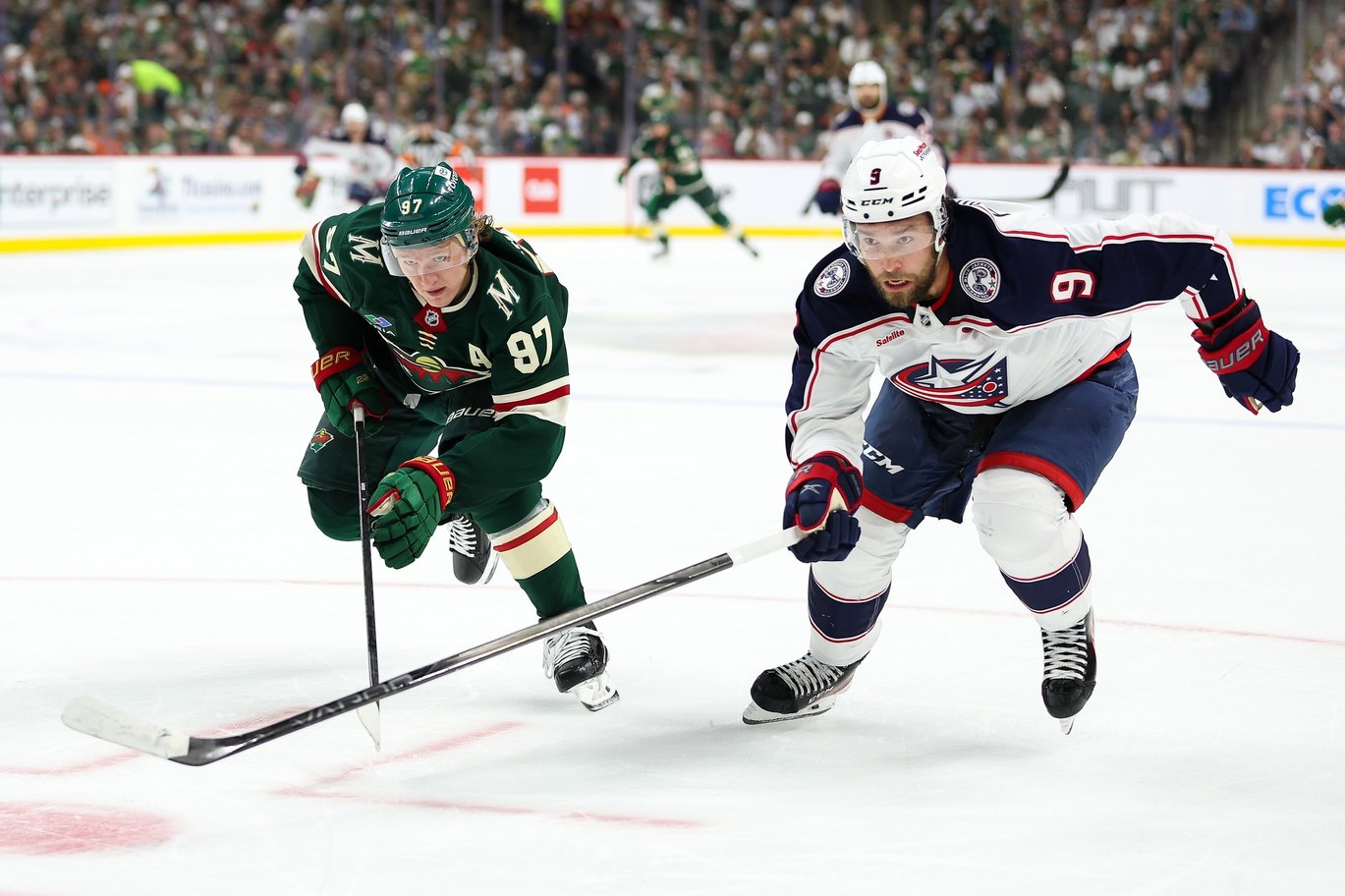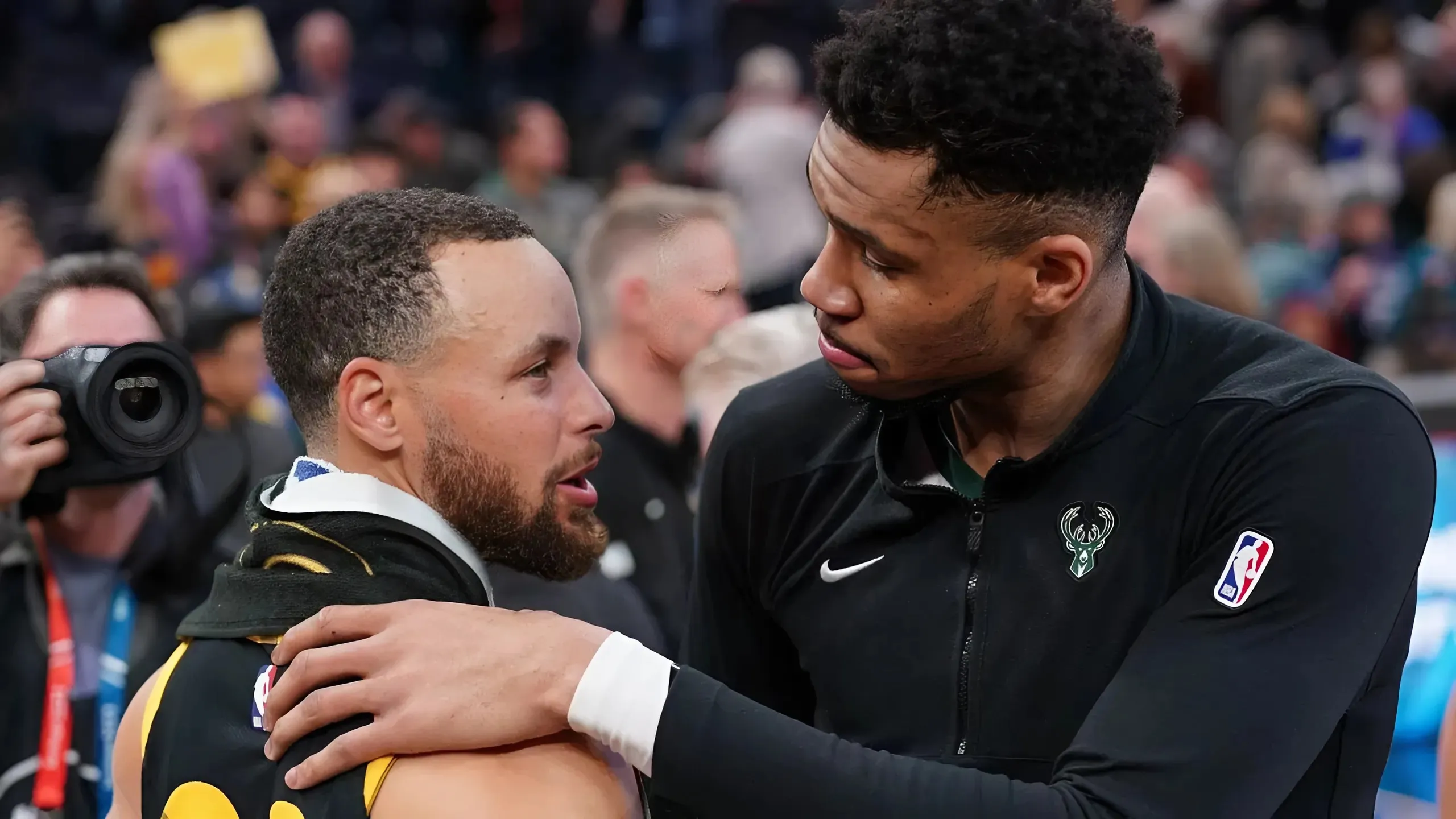Move over, Brock Faber. And forget about Ryan Suter, the former king of soaking up huge minutes. Kirill Kaprizov is the Minnesota Wild's new Ironman. In Tuesday's 4-1 win over the St. Louis Blues -- with Suter on the opposite side to bear witness -- Kaprizov led players on both sides of the rink with 27 minutes and 59 seconds.

A defenseman can log that kind of time in a regulation game, and it's notable but not unusual. Especially on a franchise that's had Suter (245 such games in a Wild uniform), Jared Spurgeon (28), Jonas Brodin (16), and Faber (8) come through their ranks in the last 15 years.
But a forward? A position that requires regular short bursts of all-out skating? That's both weird and wild.
Kaprizov's 27:59 is a team record for a forward in a regulation game, and it's not even particularly close.
- Kaprizov (10-15-2024): 27:59
- Kaprizov (10-29-2023): 27:30
- Brian Rolston (11-13-2007): 27:03
- Kaprizov (01-08-2023): 26:39
- Ryan Hartman (01-06-2022): 26:37
- Kaprizov (01-27-2024): 26:35
- Rolston (12-31-2006): 26:15
- Mikko Koivu (12-12-2013): 26:13
- Kaprizov (04-09-2024): 25:45
- Rolston (11-03-2007): 25:35
What else can you say except for: Wow? And what's crazier, it seemed that Kaprizov picked up speed throughout the night, even with 17:56 of ice time -- about as much time per game as Marcus Johansson logged last year, for context -- after two periods. He played over half the third period. While he only had two shot attempts on the night (none on goal), it was clear that Kaprizov had that dawg in him.
Marco Rossi's first of the season gives Minnesota a 3-0 lead early in the third period pic.twitter.com/DefYNWXPWL
— Spoked Z (@SpokedZ) October 16, 2024
Kaprizov shined as a forechecker, putting pressure on St. Louis' breakouts and forcing them into mistakes as the game continued. When you'd figure tired legs would create unforced errors for Kaprizov, he subverted those expectations. On a night where the Blues trailed from four minutes in, the Wild held a slight advantage in shot attempts (25-24) at even strength when Kaprizov was on the ice. It was a much-needed performance for Minnesota, who went into the game missing top-six forwards Joel Eriksson Ek and Johansson.
Don't look now, but Kaprizov is now the NHL's leader in average time on ice among forwards (22:58). Sure, that's a small sample size, and two of the Wild's four games have gone to overtime. Still, the Russian superstar is no stranger to logging big minutes. He finished with the fourth-highest average (21:35) ice time of any forward last season, behind workhorses like Mikko Rantanen (22:54), Nathan MacKinnon (22:49), and Nikita Kucherov (21:40).
Part of the reason for this is that John Hynes feels confident in smashing the "In Case of Emergency, Break Glass" panel to crank up Kaprizov's ice time in a pinch. Since coming into the league in the 2020-21 season, Kaprizov has six regulation games where he's logged 25 minutes or more -- tied for eighth in the NHL. Three of them have come since Hynes replaced Dean Evason late last November.
He's also only one of seven players with multiple 27-minute regulation games in that time. The others are Leon Draisaitl, Rantanen, Connor McDavid, Valeri Nichushkin, Alex Ovechkin, and MacKinnon.
Is that kind of workload sustainable? If you're a mere mortal, perhaps not. But if you're a freak, even among a league of freak athletes? Yeah, it actually is.
Remember how Rantanen and MacKinnon logged nearly 23 minutes a night last year? They weren't too tired to not score 40-plus goals and 100-plus points each. While you could argue that the Colorado Avalanche were exhausted in the playoffs, losing in the second round to the Dallas Stars, it's hard to blame that duo. They combined for eight goals and 28 points in 11 playoff games.
Besides, Minnesota's goal right now is getting back into the playoffs, and the only thing that got them near the postseason last season was riding Kaprizov. In March, Kaprizov logged an average of 22:17 per night, scoring 11 goals and 19 points in 13 games. What happened when Kaprizov's ice time jumped to an inhuman 23:41 average the following month?
Kaprizov saw an increase in goals per game (0.85 to 1.00), points per game (1.46 to 1.56), and shots per game (3.77 to 4.56). He got better.
Maybe there'll come a time when he looks tired consistently. However, until that day arrives, it's hard to worry about Kaprizov wilting under these kinds of minutes. Some players are built different, and it looks like Kaprizov is more than capable of being a workhorse unlike the Wild have ever seen before.



